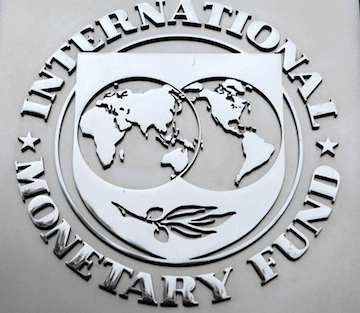
By Felix Larry ESSILFIE (Dr)
The Electricity Company of Ghana (ECG) stands at the heart of Ghana’s energy sector, a vital institution charged with ensuring the provision of stable and affordable electricity to households, businesses, and industries.
Yet, over the years, ECG has become a symbol of inefficiency, financial mismanagement, and operational failures.
The persistent challenges it faces—ranging from high technical and non-technical losses to inflated procurement costs and unsustainable debt accumulation—have far-reaching consequences for Ghana’s fiscal health, macroeconomic stability, and industrial competitiveness.
As Ghana navigates the stringent conditions of the International Monetary Fund (IMF)-supported economic recovery program, ECG’s financial hemorrhaging has become an urgent policy concern. Addressing these inefficiencies is not merely about stabilizing an ailing power distribution company; it is about safeguarding the broader macroeconomic trajectory of the country.
ECG’s inefficiencies have significantly contributed to Ghana’s deepening public debt crisis. The company has consistently failed to generate sufficient revenue to cover its operational costs, forcing the government to step in with direct budgetary support.
These financial bailouts, which run into hundreds of millions of dollars annually, have placed additional pressure on Ghana’s already constrained fiscal space. The mounting debt obligations owed to Independent Power Producers (IPPs), which exceeded $1.4 billion as of 2023, have only exacerbated the situation. The government’s inability to settle these debts on time has led to threats of power supply disruptions, further destabilizing the economy and discouraging foreign investment in the energy sector.
The implications of these inefficiencies extend beyond ECG’s financial troubles. They have macroeconomic repercussions that threaten Ghana’s economic recovery. The IMF’s fiscal consolidation strategy hinges on reducing public expenditure and enhancing revenue mobilization.
However, the need for continued financial injections into ECG contradicts these objectives, straining Ghana’s debt restructuring efforts and weakening investor confidence. Ghana’s sovereign creditworthiness is already fragile, and the persistent fiscal burden posed by ECG only worsens this outlook. Higher sovereign risk premiums, coupled with deteriorating credit ratings, make borrowing more expensive, limiting the government’s ability to fund critical development projects.
Beyond fiscal concerns, ECG’s operational inefficiencies directly undermine the growth and competitiveness of Ghana’s private sector, particularly its industrial base. Manufacturing and energy-intensive industries, which rely heavily on a stable power supply, have borne the brunt of ECG’s inefficiencies.
Unreliable electricity supply has resulted in frequent power outages, disrupting industrial production and increasing the cost of doing business. Ghanaian manufacturers, already struggling with high input costs, find themselves at a competitive disadvantage compared to their regional counterparts in Côte d’Ivoire and Nigeria, where electricity costs are significantly lower. The inefficiencies of ECG also force many businesses to turn to expensive alternatives, such as diesel-powered generators, further eroding profitability and diminishing the country’s attractiveness as a destination for industrial investment.
Small and Medium Enterprises (SMEs) have not been spared. ECG’s financial mismanagement has led to a cycle of electricity tariff adjustments, with rates increasing by over 60% since 2022. For SMEs, which often operate on thin profit margins, these rising costs have translated into severe financial strain, reducing business viability and increasing the likelihood of closures.
In a country where SMEs contribute significantly to employment and economic activity, ECG’s inefficiencies are not just a financial problem—they are a national economic challenge. The situation has created a domino effect, where increased production costs are passed on to consumers, fueling inflationary pressures. The IMF program prioritizes inflation control as a core economic stabilization measure, yet the unchecked inefficiencies of ECG continue to drive up living costs, undermining broader economic recovery efforts.
Electricity affordability has become a growing concern for households as well. The frequent tariff increases driven by ECG’s operational inefficiencies have disproportionately impacted low-income consumers, exacerbating energy poverty.
Many households now allocate a larger share of their disposable income to electricity costs, reducing their spending on essential needs such as food, healthcare, and education. This situation is particularly concerning in the context of Ghana’s broader economic difficulties, where rising inflation and stagnant wages have already eroded household purchasing power.
The governance and institutional weaknesses underlying ECG’s inefficiencies are equally concerning. Regulatory oversight, which should serve as a safeguard against procurement malpractices and financial mismanagement, has been largely ineffective.
The Public Utilities Regulatory Commission (PURC), tasked with ensuring compliance and accountability in the energy sector, has struggled to enforce efficiency standards, allowing procurement breaches and financial irregularities to persist. The absence of an independent, performance-based evaluation system has further emboldened these inefficiencies, as there are minimal consequences for poor financial and operational management.
The government’s approach to addressing ECG’s financial challenges has largely been limited to periodic bailouts, but these interventions have failed to deliver meaningful reforms. Without stringent performance-based funding conditions, these bailouts have only reinforced a cycle of inefficiency and financial dependency. The fundamental structural issues that plague ECG—high revenue leakages, poor infrastructure maintenance, and weak procurement oversight—remain unaddressed, ensuring that the financial distress continues unabated.
Resolving ECG’s inefficiencies requires a multi-faceted reform approach that goes beyond mere financial injections. Enhancing operational efficiency should be a top priority. The deployment of smart metering and digital revenue collection mechanisms can significantly curb non-technical losses associated with power theft and billing irregularities.
A stricter regulatory framework, with clearly defined penalties for power theft and fraudulent billing practices, is essential for restoring financial discipline within the company. Infrastructure modernization is also critical. Investing in a more robust and efficient electricity distribution network will help reduce technical losses and improve service reliability, benefiting both businesses and households.
Strengthening governance and regulatory oversight is equally crucial. ECG’s procurement processes must be subjected to stricter scrutiny, with a transparent and competitive bidding system that eliminates inflated contracts and financial leakages.
Establishing an independent financial audit framework will enhance accountability, ensuring that revenue generated is appropriately allocated to operational and capital investments. Implementing a performance-based management structure, where executive compensation is linked to efficiency targets, will provide the necessary incentives for leadership to prioritize financial and operational improvements.
Alternative financing strategies should also be explored to reduce ECG’s dependence on government bailouts. Concessional financing arrangements can be leveraged to fund critical infrastructure upgrades without exacerbating fiscal risks. Encouraging strategic Public-Private Partnerships (PPPs) in distribution management—while maintaining public ownership—can inject much-needed efficiency into ECG’s operations. Furthermore, Green Energy Financing Mechanisms can be introduced to support investments in renewable energy, diversifying ECG’s revenue base and enhancing long-term financial sustainability.
Aligning ECG’s reforms with Ghana’s IMF-supported economic recovery program is imperative. The country cannot afford to allow ECG’s inefficiencies to continue undermining its fiscal consolidation efforts and macroeconomic stability. A financially stable and operationally efficient ECG is not just a sectoral necessity—it is a fundamental pillar of Ghana’s broader economic recovery. Addressing ECG’s challenges with evidence-based and financially sustainable strategies will restore confidence in the energy sector, reduce fiscal burdens, and ensure that Ghana’s economy is positioned for long-term growth.
The urgency of this reform agenda cannot be overstated. Ghana’s economic future depends on bold and decisive action to resolve ECG’s inefficiencies. If these challenges are left unaddressed, the consequences will be severe—ranging from worsening public debt to stifled industrial growth and deteriorating investor confidence. The status quo is no longer an option. The time for meaningful reform is now.
The writer is a Development Economist and Executive Director, IDER
Email: [email protected]
The post Electricity sector mismanagement: Implications for fiscal and economic recovery appeared first on The Business & Financial Times.
Read Full Story















Facebook
Twitter
Pinterest
Instagram
Google+
YouTube
LinkedIn
RSS